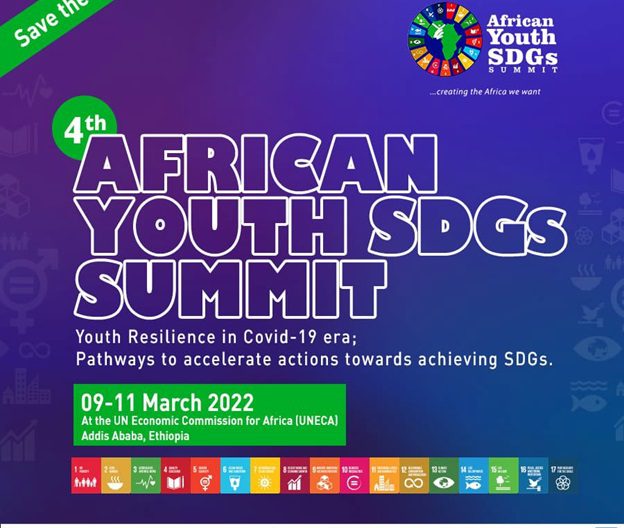
Africa is a continent characterized by a young generation. As studies indicate, almost 60 percent of its population is under the age of 25, making Africa the world’s youngest continent.
In fact, this segment of the society, if it is turned into a productive force and utilized accordingly, it can contribute significantly in addressing continent’s development challenges, accelerating its overall economic growth; and changing the wrong narratives attached to it, some of course out of ignorance and some with intent.
However, to make this a reality, harnessing the potential of the young people which are the major forces of development, and augmenting their overall engagements in sustainable development efforts is central.
With this same objective and to enable African countries achieve the global goals of ending poverty and creating a world free from poverty, hunger and disease that all UN Member States have agreed to work towards achieving it by the year 2030, Africa is working persistently.
As extension of this ambition, a three day Summit that aims to improve awareness and knowledge among the youth about the Sustainable Development Goals (SDGs), specify their roles in the implementation process of SDGs, is ongoing, here in Addis Ababa, Ethiopia, at the Hall of UNECA under the theme ‘Youth Resilience in the COVID-19 Era, Pathways to Accelerate Actions Towards Achieving the SDGs’.
The 4th African Youth Sustainable Development Goals Summit, which is said the largest youth forum on sustainable development in Africa, has engaged many African youths in hybrid form-both virtual and in person.
In her keynote speech, Tirumar Abate, State Minister for Monitoring and Evaluation sector at the Ministry of Planning and Development said that with increased participation of the youth and the right policy framework in place, hopefully Africa will make big strides to achieve the SDG goals.
“As a continent, we should focus on how to expedite the contribution of our young population to build the Africa we want; we have the solutions to our problems.”
Underscoring the importance of understanding the role the young people can play in agendas 2030 and 2063, she said the young generation can play constructive role in nations’ development endeavors, she added.
Taking Ethiopia as a model, Tirumar said that the 10-year development plan of the country incorporates Sustainable Development Goals and Agenda 2063.
She also extended her hope the Summit to be fruitful and productive in engaging participants innovatively and offer a collaborative digital space for participants, partners and interest groups in Africa and across the globe to share experiences and perspectives.
The UN Resident Coordinator for Ghana, Charles Abani on his part said that African population is predominately young with almost 60 percent of the population under the age of 25 years and population is projected to remain constant in the next 50 years. This demographic transition is the Africa region is faced with.
Recalling the statement he made at the previous Summit held in Accra in 2020, he said: “Young people are the most precious resource of the region. African can only thrive if young people thrive. Today, at the opening of the fourth summit here in Addis Ababa I re-echo the sentiment.”
“Africa’s growth and development remains in the political, social and economic decisions that recognize the integral role and relevance of the continent’s most valuable resource, its young people.”
As to him, the potential of youth will only be realized when we invest in their education, health, skills and empowerment. As well as provide them with a conducive environment where they can make informed choices and provide meaningful platforms to their engagement in political and other decision making processes that affect them, the countries they live in and the continent as a whole.
Collectively, these investments are enablers for harnessing Africa’s democratic dividend. It is exciting that this summit is focused on the SDGs and young people in Africa. Young people are a major force for sustainable development and key agents for social change economic growth, technological advancement and innovation.
Young people are taking the regions in achieving the decade action for the SDGs – from tackling gender biases and inequalities to calling for urgent climate action, promoting peace and security and just and stable democracies across the continent.
“Young people need our commitments and support in order to continue to spearhead movements and initiatives for the developments. It is for this reason that the UN adopted the 2030 Youth Strategy, a framework seeking to significantly strengthen the UN’s capacity to engage young people and benefit from their views, insights and ideas,” he remarked.
More importantly, this will enable and ensure that the UN’s work on youth issues is pursued a coordinated, coherent and holistic manner with young people at the middle.
Stating a number of challenges the COVID-19 global health emergency had created and it has disrupted many aspects of life across all society groups, he said the pandemic has posed significant risk to young people, particularly vulnerable youth in areas such as education, employment, health and others.
The theme of this year’s Summit is set to challenge, reflect on the path to achieving the SDGs as leading decision makers and young people contribute, inspiring open constructive discussions on young people’s participation in the SDGs implementation, monitoring and accountability, networking strategically with youth leaders’ organizations and key stakeholders working on the SDGs.
It also motivates to envision innovative ideas, to provide, addressing the SDGs while taking part in practical programs for creating solutions.
“These, we believe, are the part of the efforts of reducing the aggravated intergenerational inequalities and engaging young people in the development of societal resilience,”
The Summit is expected to be concluded today, March, 11, 2022.
BY ELIZABETH MENGISTU
THE ETHIOPIAN HERALD FRIDAY 11 MARCH 2022





